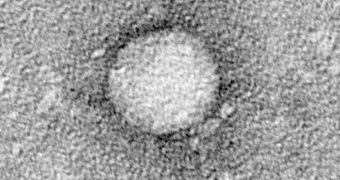After a scientific investigation that lasted more than a decade, researchers finally announce the development of a vaccine against hepatitis C. Until now, all other attempts at creating a working vaccine have failed, so the disease was classified as incurable.
In an announcement made yesterday, February 20, at the Canada Excellence Research Chairs Summit, in Vancouver, Canada, University of Alberta researcher Michael Houghton said that the vaccine he and his team developed proves effective against all hepatitis C strains.
The team leader, who is a Canada Excellence Research Chair in Virology, was also the lead investigator of the group that discovered the virus back in 1989. Houghton is the Li Ka Shing Chair in Virology at UA.
One of the most important things about the new vaccine is that it was developed from a single strain, the expert adds. When work on this project first began, Houghton was still working for pharmaceutical giant Novartis.
At first, he obtained some promising results with his earliest attempts at creating a vaccine. Using funds provided by the US National Institutes of Health (NIH), he was able to lay down a solid theoretical groundwork for his more advanced studies.
After the initial stages of the study, only two fundamental questions remained: “did the recipients actually produce antibodies that could neutralize the actual infectious virus, and if they could, how broad was the neutralizing response?” he says.
It's also important to keep in mind here that HIV, the virus that causes AIDS, is significantly less virulent than hepatitis C. This property was also thought to vary widely among the different strains of hepatitis C, Science Blog reports.
The new vaccine he developed with co-investigator John Law is able to trigger the production of cross-neutralizing antibodies within the human body, which fight off nearly all major viral strains.
“This tells us that a vaccine made from a single strain can indeed neutralize all the viruses out there. It really encourages the further development of that vaccine. This is a really a big step forward for the field of HCV vaccinology,” the team leader explains.
“A breakthrough such as this one is exactly the kind of advance we believed would happen here when we created the Li Ka Shing Institute of Virology and recruited internationally renowned researchers such as Michael Houghton and his colleagues,” UA president Indira Samarasekera comments.

 14 DAY TRIAL //
14 DAY TRIAL //